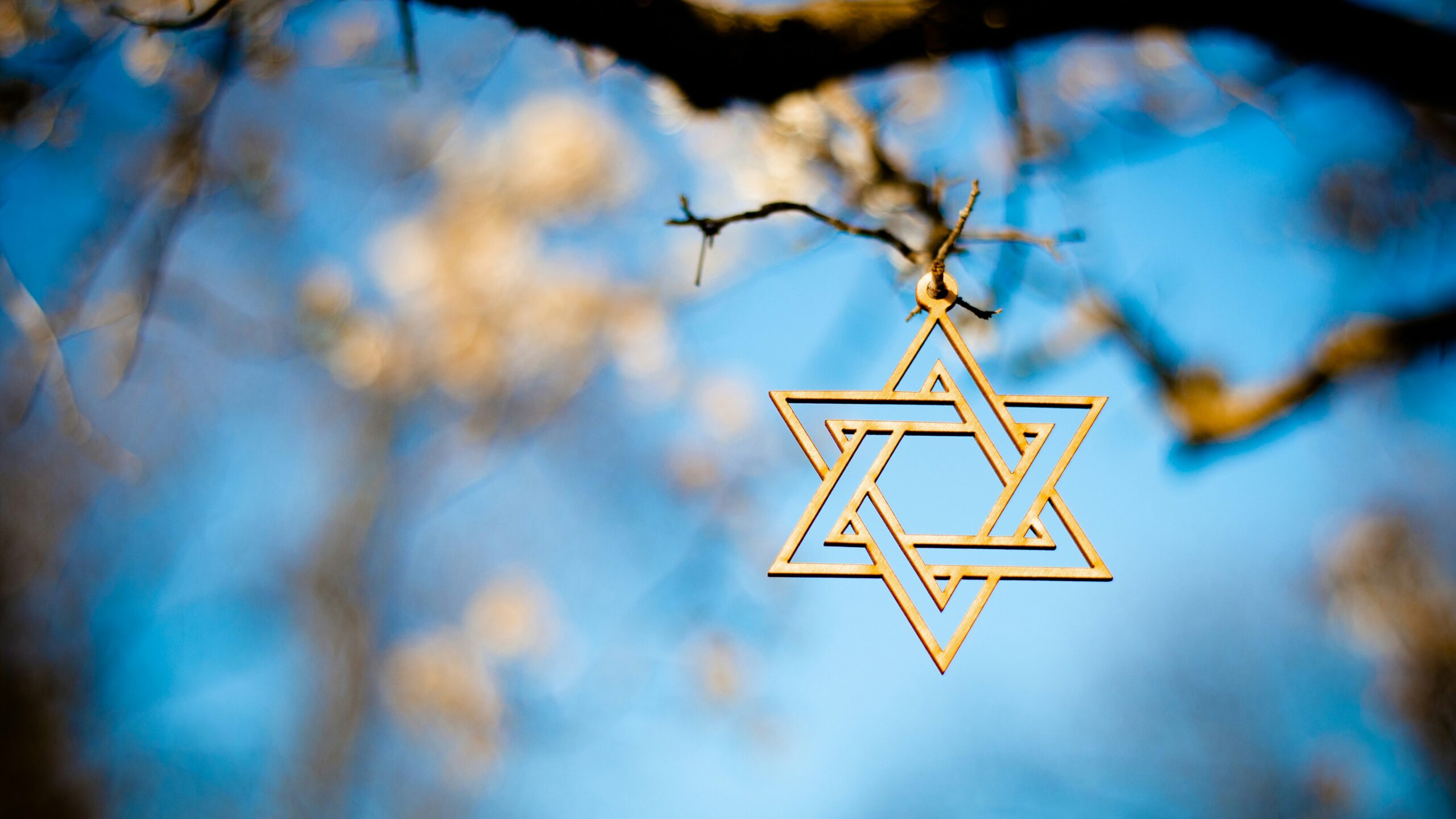During the veneration of the cross on Good Friday this year, millions of Catholics meditated on Mary helplessly watching her son’s execution. It was a particularly poignant thing to consider: the Jewish man publicly mocked, tortured, and killed by soldiers acting on generations of sectarian hatred, his mother watching helplessly. But this Good Friday was different from ones in recent memory. Just months earlier, we bore witness to a horrifically similar scene on our phone and television screens. On October 7, 2023, and for days, weeks, and months after, Americans either quickly scrolled past or gaped in horror at footage of Jews—like Mary, like her Son—powerless to stop the torture and brutal death of their own children, targeted just for being Jews. Recall Jesus’ words to his followers in John 15. “If the world hates you, realize that it hated me first,” he cautioned, “If they persecuted me, they will also persecute you.” The tears that flowed from Catholics as they crept forward to venerate the cross on Good Friday, to kiss his wounds and mourn his suffering—how many were shed for his co-religionists in Israel in the days immediately after October 7, 2023? We, whose sins put him on the cross as a visible sign of the dehumanizing, disfiguring effects of sin, are we speaking out against the vicious antisemitism that has been developing in our midst for years? If we aren’t, it’s not too late to start.
US Christians are very alert to threats against them. Since 2020, there have been hundreds of attacks on US Catholic churches alone. But unlike my local Jewish congregation on Shabbat, my church doesn’t have locked doors and police visibly posted outside on Sundays during Mass. There was nothing at a Catholic church like the Tree of Life synagogue shootings in 2018 or the Texas synagogue hostage takeover in 2022. The world that hates Christians—who elsewhere in the world are indeed the victims of savage mass killings—hated our older brothers in the faith first. The ancient prejudice against Jews that caused their expulsion from many places over many centuries didn’t go anywhere. That hatred is alive and well today—it didn’t begin on October 7. Crimes against Jews in the United States have been on the rise for years (the FBI hate crime database shows that anti-Jewish hate crimes were second only to anti-black ones, a number that has only gone up since 2022, their most recent numbers).
An activism that is characterized by hope is an activism that doesn’t need to destroy, demonize, or dehumanize.
As Catholics, we have a special responsibility to recognize and to speak out against antisemitism. But what do we say? So much of what we see on the news and in our social media is political, untrustworthy, confusing, or lacking context. Since the most high-profile antisemitism right now relates to the war in Gaza, it is understandable that Catholics don’t want to be perceived as minimizing the suffering of the innocent people there, especially since it can feel like you need a PhD in Middle Eastern history to weigh in at all.
But let me offer a few humble suggestions.
First, you can start by getting to know actual Jews. I mean really befriending Jews as Jews. Visit with them as brothers and sisters, not as part of a self-improving field trip, as bar mitzvah hosts, potential evangelization opportunities, or as tragic reminders of the legacy of the Holocaust.
Since 2020, it has been my great privilege to write for a Jewish publication. Speaking for myself as a Christian, it is hard to spend much time immersing yourself in Judaism, its cultures (plural), its beliefs, its texts, and traditions, and not find yourself awed and humbled. A whole dimension of God is opened to you. Imagine you had somehow never bothered to meet your spouse’s oldest, dearest friend. After meeting that friend and hearing about your beloved from an entirely different vantage point, how much more would there be to fall in love with? Reach out to your local Jewish community as a Catholic. Ask if and how you can show up for them. If you’re invited to a Shabbat service, you should go, especially if you’ve never been to one before. Judaism as it is practiced today is not the first-century Judaism before the destruction of the Second Temple. If our knowledge of Judaism remains something theoretical, academic, and preserved in amber in 69 AD, then we don’t really understand Judaism. Jeff Cavins’ Bible Timeline and Brant Pitre’s books are useful for Catholics, but there is no substitute for knowing what twenty-first-century Jews have to say about their own historical religion and tradition for themselves. Learn how God carries on his love affair with his chosen people! We must have the humility of the Gentiles in the Book of Zechariah, the people “of every nationality, speaking different tongues,” who “take hold of every Jew by the edge of his garment and say, ‘Let us go with you, for we have heard that God is with you.’”

At the same time, Christians and all people of goodwill must avoid the temptation to caricature the people spouting extremist rhetoric or advancing conspiracy theories. The antisemitic rhetoric we see and hear in the United States today across the political spectrum is consistent with a broader cultural trend of retreating from a tumultuous age into hateful extremes and conspiratorial thinking. Oppressor and oppressed, good guys versus bad guys, resistance versus empire—they are appealing narratives, simple and unambiguous. Similarly, conspiracies offer the reassuring sense that there is some unifying explanation for why everything is so broken, unfair, and sad. Acknowledging this doesn’t let anyone off the hook; being scared and feeling the world has passed you by is no excuse for Jew hatred.
We would do well rather to reflect on whether the massive appeal of bigotry and paranoia today are, to some extent, the result of a dereliction of duty on the part of believers. Have we made any active effort as people of faith to offer a constructive alternative to conspiracy theories and bigotry?
The examples of extremism on the pro-Palestinian campus left are instructive. I’m an Army wife and daughter. I know people personally who have been killed or otherwise affected by the violence, brutality, and senselessness of war. College students who are seeing images from Gaza on their phones are understandably shocked and angered—they are right to be, because war is horrible, and a symptom of the fallen nature of the human condition. Any good soldier would agree that it is to be prudently avoided if at all possible. But operating (as many Americans are) in a teleological vacuum, many young people have no way to make sense of suffering. When they chant support for terrorists and voice antisemitic threats as part of their protest, they are latching onto the narratives they have been offered. In too many cases, those narratives are nihilistic lies introduced by bad faith actors, easily grasped for their simplicity, but which usually lead to collectively blaming Jews.
Jews shouldn’t have to defend their humanity, and they certainly shouldn’t have to do it alone.
Yet Catholics are called to remember that the people espousing hate are made in God’s image too.
We are called to offer hope to those on the margins. The divisiveness that characterizes twenty-first-century activism would seem to indicate that that includes the ideological margins, where those who hunger and thirst for justice are fed only slogans and facile explanations. Those searching for meaning, the young and alienated in particular, deserve a constructive alternative to desperate blame-casting. If Catholics believe what we say we believe, that we have the truth of eternal life, then we need not fall prey to the ersatz justice of scapegoating an entire ethnicity or religion. We offer a powerful alternative: hope.
Faith allows us to acknowledge that we don’t know what the future will look like, or even that everything will always work out the way we think it should—in this world we will have trouble, after all. As Christians, we believe in a God who knows our suffering intimately, but who has nevertheless overcome the world. We are obligated to lift high the cross, not worry about who put Jesus there in the first place (for the record, it was all of us). We are called to reflect in our own lives Jesus, the suffering victim, who came not to be served, but to serve. We are also called to see Christ in others: the Hebrew God’s beloved Son, in whom he is well pleased.
This past March, I attended the Faith Angle Forum in Miami, Florida, a conference with journalists, faith leaders, and academics, to discuss the intersection between journalism and religion. One of the panelists, the Reverend Charlie Dates, spoke about his observations as a black faith leader working for racial justice in Chicago. He said he encounters young people who care passionately about ending oppression, brutality, and discrimination, who “know how to protest,” he said, “but not how to pray.”
If social justice lacks the theological hope that gave the Civil Rights Movement of the 1960s its profoundly religious character, it is because it lacks an eschatology. There is only the here and now in an activism that lacks any sense of itself belonging to something eternal and transcendent. But as a Christian, Dates knows that if his preferred candidate in a given election does not win, all hope is not lost. “The church isn’t going anywhere,” he said, “It has outlived every empire, every potentate, every ruler, and it will continue. Because our Founder is still alive.” An activism that is characterized by hope is an activism that doesn’t need to destroy, demonize, or dehumanize.
Catholics and Christians like Reverend Dates don’t need to prepare eloquent talking points about Israel, Gaza, or American foreign policy. Antisemitism predates the creation of the state of Israel, anyway. We are told that we need only to be ready to give the reason for our hope, not regurgitate a pithy TikTok influencer’s take on why the world is broken and what we need to do about it.
Too many recent events have displayed the American ideological fringes’ unsettling penchant to deny Jews’ humanity, whether it’s the people chanting “Jews will not replace us” at the Unite the Right rally in Charlottesville in 2017, or the ones filmed tearing down photos of Jewish hostages on New York City streets after October 7th. We cannot ignore the effect that the attack had on American Jews. Many have friends and family in Israel, some of whom were killed or taken hostage on that day.
Jews shouldn’t have to defend their humanity, and they certainly shouldn’t have to do it alone. American Catholics in particular have to have the humility to recognize that the threats that American Jews face in their own country are much more immediate than the ones we face. The truth of our own lives must be the answer to the contemporary nihilism that would make a wasteland and call it peace.
